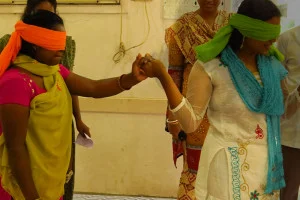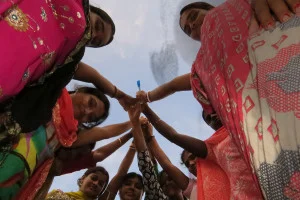The Road to Trust: How SAANS Leaders' are dealing with community resistance
In order for anti-trafficking efforts to truly make a difference, it is crucial to have a comprehensive approach that involves a diverse array of professionals, including survivor leaders. These individuals, as primary stakeholders in the field, bring a wealth of invaluable insight and expertise to the table. However, it’s important to recognize that the journey to leadership for survivors is often markedly different from that of individuals who have not experienced the trauma themselves. One collective that understands this reality all too well is SAANS. Though they have encountered both support and resistance from their communities, SAANS’ survivor leaders have persevered and emerged as true change-makers. To truly empower survivor leaders, it is essential to understand how communities respond to specific actions and what factors help leaders rise above the resistance they may encounter. By doing so, we can help ensure that these individuals are able to thrive and make a lasting impact in the anti-trafficking field.
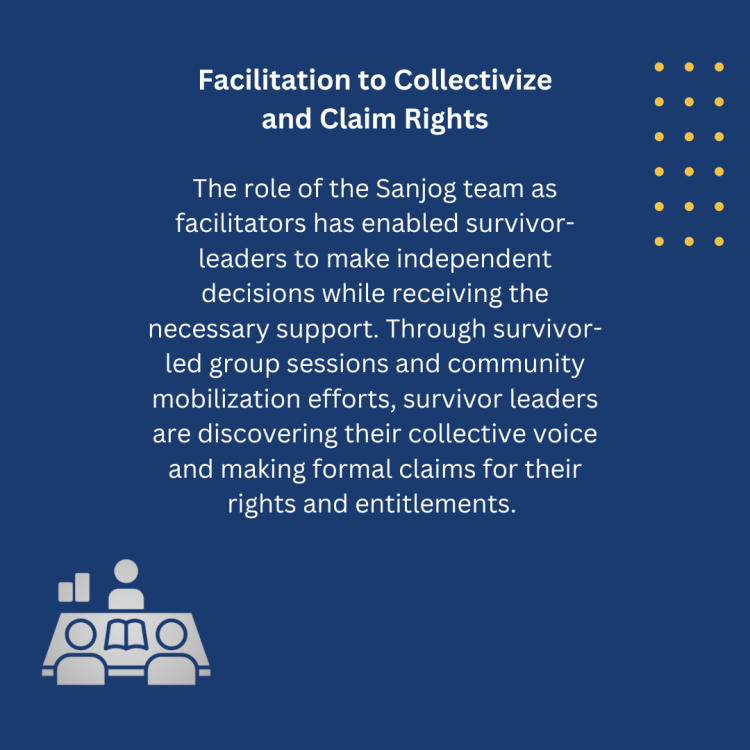

Facilitation to Collectivize and Claim Rights
Facilitation has been a crucial element in forging meaningful connections with survivors of trafficking. The role of the Sanjog team as facilitators has enabled survivor-leaders to make independent decisions while receiving the necessary support.
For survivors of trafficking, isolation and lack of information about their rights can be overwhelming obstacles. But with the support of dedicated facilitators, survivors are learning to come together, form groups, and assert their rights. Through survivor-led group sessions and community mobilization efforts, survivor leaders are discovering their collective voice and making formal claims for their rights and entitlements. In the face of adversity, they are finding strength in unity and advocating for themselves and their peers with newfound confidence.
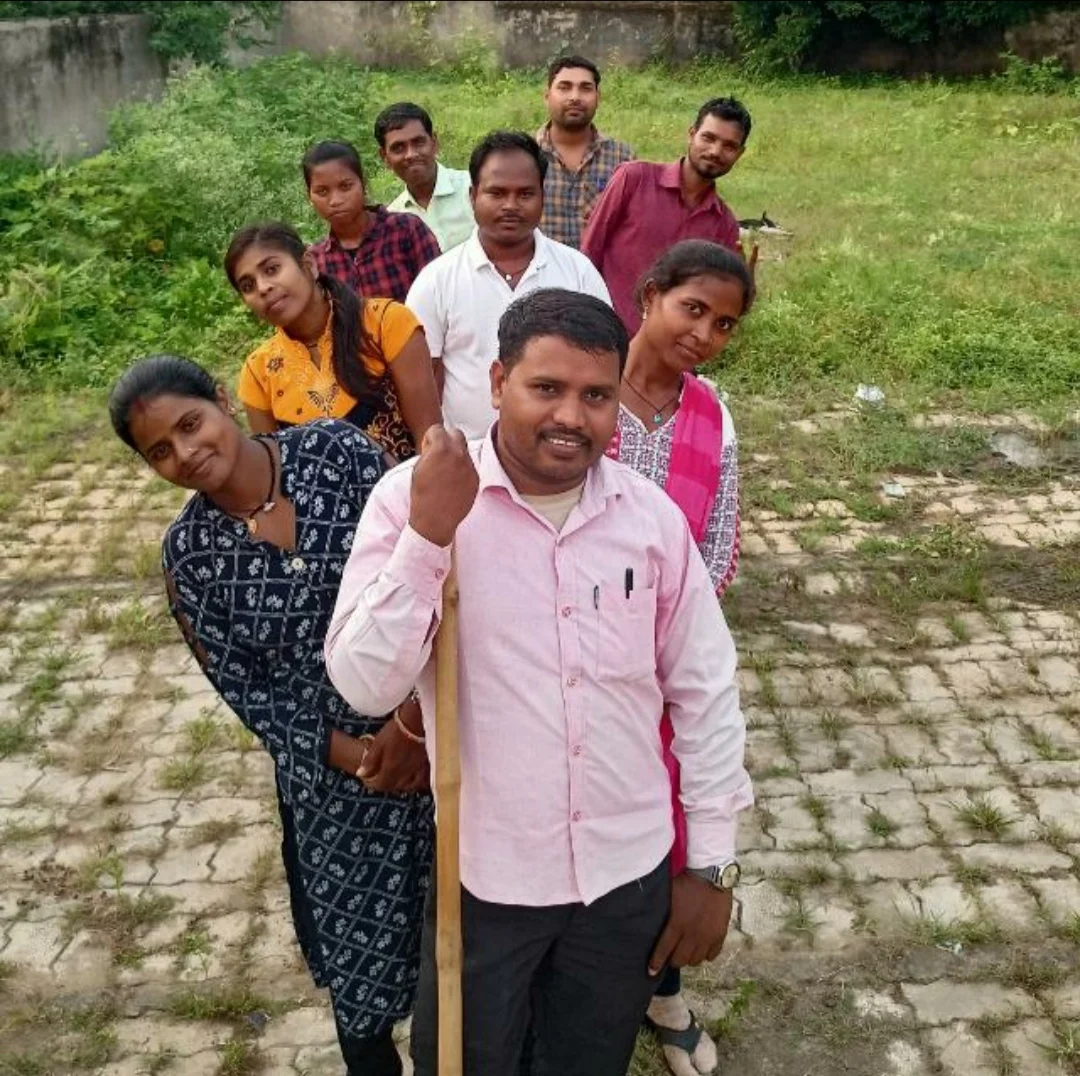

Critical Stances by SAANS Leaders that received Community Pushback
— Transformative efforts for better education
Amidst the myriad of challenges faced by SAANS leaders, one area in which they have made significant strides is in their efforts to upgrade the quality of education in their communities. To achieve this goal, SAANS leaders have established libraries and education centers, which they hope will serve as a catalyst for change.
Unfortunately, these efforts have not been met with support. In fact, many community members were hostile towards the idea initially, viewing it as a futile investment of both time and resources. After all, the community had long survived with the bare minimum when it came to education infrastructure, and it was difficult for some to see how the addition of new libraries and education centers would make a meaningful difference.
Despite this resistance, SAANS leaders have remained undaunted in their quest to bring better education to their communities. Though progress has been slow, they have managed to mobilize a small but committed group of supporters who believe in their cause.
— Standing up with victims of domestic abuse
The persistence of patriarchal practices has long perpetuated the problem of domestic abuse, with communities often turning a blind eye to the issue. For SAANS leaders, this has proven to be a particularly challenging problem to tackle.
In one instance, a SAANS leader faced intense backlash after accompanying a woman to lodge a First Information Report (FIR) against her abusive husband. Though some members of the community supported the leader’s actions, many others expressed strong disapproval of what they viewed as a rebellious act.
Breaking down the stigma associated with challenging domestic abuse has proven to be an uphill battle for SAANS leaders, who have encountered significant resistance in their efforts to effect change.
— Providing free and easy access to services and critical resources
SAANS, in its effort to uplift the community, has introduced a range of free services aimed at providing critical resources to those who need them the most. However, this move has not been met with universal support.
For some members of the community who had previously profited from providing these resources in exchange for monetary compensation, the introduction of free services has been viewed as a direct threat to their livelihood.
Additionally, SAANS leaders have faced challenges from local administration and the Sarpanch, who have been resistant to the changes being implemented in the community.
While the road ahead may be long and difficult, SAANS leaders have already achieved significant success in their efforts to end the exploitative practices that have plagued their community for far too long.
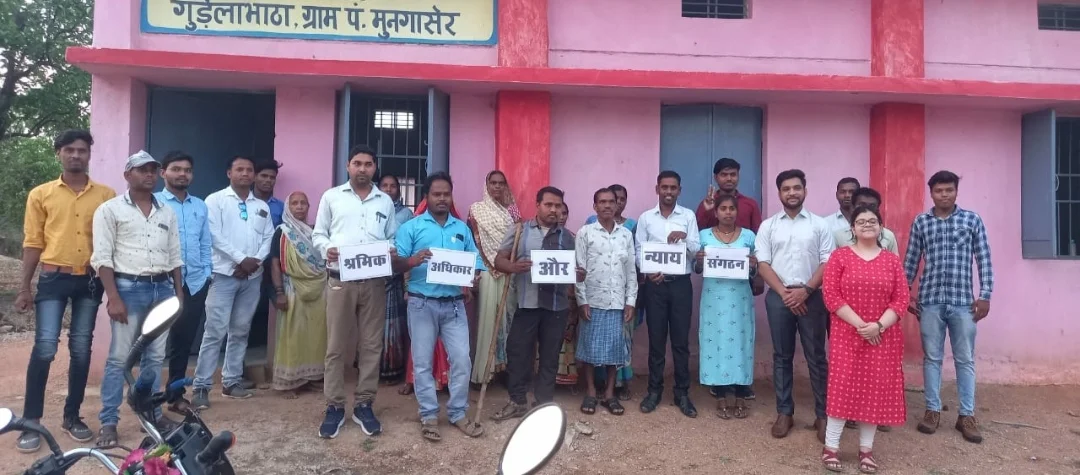

SAANS leaders gaining community trust through their efforts
Survivor leaders from SAANS have faced significant skepticism from community members, with many fearing that these leaders may misuse funds earmarked for community development. Additionally, traditional authority figures within the community have been resistant to the initiatives of youth survivor leaders.
However, SAANS leaders have managed to reduce these frictions through their ongoing efforts to provide essential resources and services to the community. One example is a ration drive that they conducted, which helped to build trust and support among community members. Initiatives such as establishing education centers have also played a key role in bringing about a change of heart among skeptics.
As SAANS leaders continue to work tirelessly to improve the lives of community members, they are gaining increasing recognition and respect for their efforts. The positive response to their work has also led to a growing sense of trust among community members, with many now seeking out SAANS leaders for help and advice in difficult situations
Unifying social change and voices of survivor leaders
Survivor leaders in the anti-trafficking movement face a unique challenge of overcoming trauma while also reintegrating into their communities. The importance of supporting these leaders is emphasized by Chris Ash, the Survivor Leadership Program Manager at the Coalition to Abolish Slavery and Trafficking.
“Instead of othering them, organizations working in the sector must provide the same level of support to survivor leaders as they would to any other employee. This includes mentoring and development opportunities, support during challenges, opportunities for feedback, and the freedom to be their true selves without past experiences determining how they are treated.”
Organizations like SAANS and other collectives that support survivor leaders deserve unhindered support. They should be the primary voice in their journey of change. Sanjog is committed to standing with survivor leaders of SAANS to provide them with the resources they need to become influential leaders that they deserve to be. Sanjog has provided training and mentorship to help the leaders navigate the challenges of their work. By partnering with Sanjog, the SAANS leaders have been able to access the tools they need to effectively advocate for the needs of survivors and create sustainable change.
In a world where trafficking survivors often face stigma and discrimination, the success of the SAANS leaders is a testament to the power of survivor-led initiatives.
Team Sanjog
|
Thursday
,
May 18, 2023

